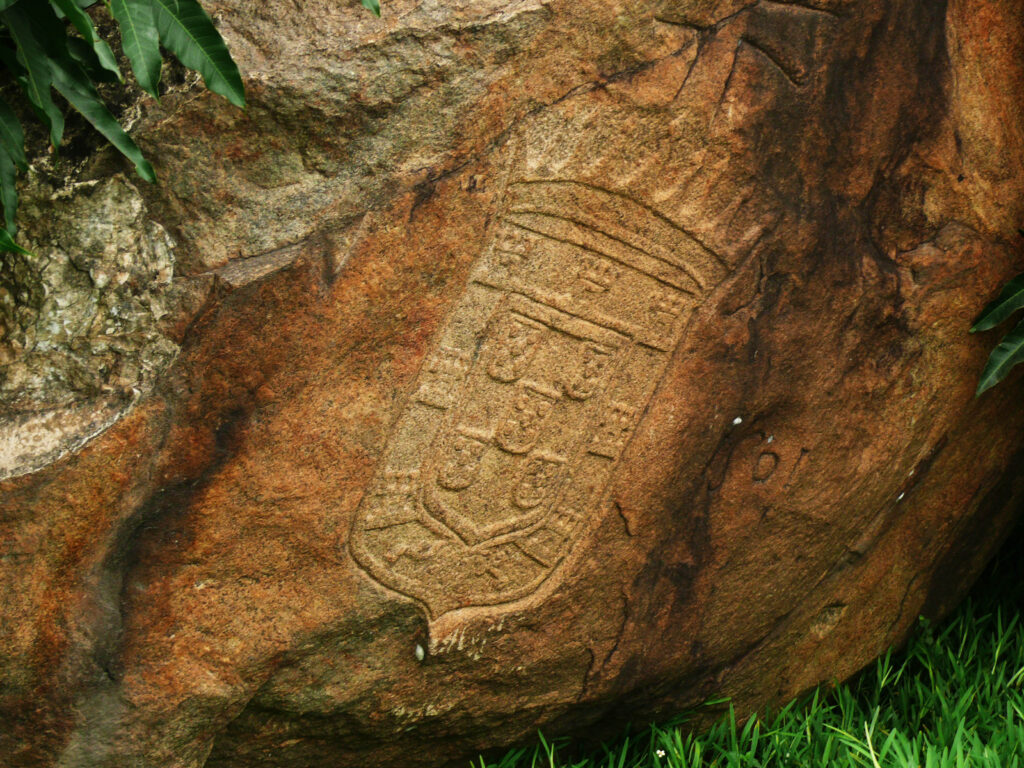“They passed even beyond Taprobana”, is how Camões begins his poem, which sings of the Lusitanian greatness. Taprobana, later Ceylon and today called Sri Lanka, has always been a mythical land for the Portuguese, who officially arrived there in 1505, but there is a rock there, as you can see in the photograph, which has engraved Portuguese weapons and the date of 1501.
Legend has it that Adam, expelled from the biblical Eden, went to live on that island, whose name today means Paradise.
The Portuguese remained there until the Dutch, who were always pirates after our possessions when we were under the Spanish yoke, expelled us at the beginning of the 17th century; but, unlike these new occupants, who would also end up being expelled by the British in the 18th century, who left little or nothing in the local memory, the Portuguese heritage lasted for centuries.
Our language was so rooted there that the Dutch themselves, in order to understand each other with the various small local kingdoms, had to adopt the Portuguese language as a regional contact language.
Calvinists, they destroyed churches and ruined fortresses, eliminating some and building others as parts of their defensive systems. However, the Galle Fort, an impressive Portuguese construction, is classified as a World Heritage Site by UNESCO.
But, to ensure the continuity of their presence, the Dutch have invested in the reconstruction of monuments and even a Maritime Museum in which everything is talked about without a single word for the Portuguese presence that preceded them...
Portugal has never invested a shield there – and yet, there is a community that is proud of its Portuguese heritage, that sings, dances and celebrates its traditions.
When, this December 23, a small group of Portuguese visited Taprobana, they shared a party with the community Portuguese Burger in the city of Batticaloa, which brought forward its National Day celebrations to keep this gathering memorable for everyone.
Some Portuguese names are widely used among locals, such as Maria, Fernando and others; women are registered at baptism as “dona” – dona Maria, dona Fátima, etc.; the bakery industry is a Portuguese heritage, as the paan It is today an indispensable food and, in a bakery, even the owner has Silva in her name. You can have lunch or dinner at the Cyriil Rodrigo Restaurant.
As occupiers, we also did some mischief there, destroying Buddhist temples following orders from the Inquisition and stealing the “Buddha's Tooth” relic that was sacred to the locals - but the Dutch left worse memories in these aspects... Serve as consolation.
The cult practiced in the Church of Santo António, in Colombo, where believers of other denominations flock (reminiscent of the cult of St. Francis Xavier, in Goa) is significant.
Because Portugal does not have diplomatic relations with Sri Lanka, other than an honorary consul who does not know a word of Portuguese, nor has she ever even visited the aforementioned community of Portuguese culture…
Apart from some small work by Fundação Oriente, Portugal does nothing to maintain and expand cultural relations with a mythical land where our past is celebrated - they came to a Festival in Figueira da Foz, a few years ago.
It's an unforgivable gap.


















Comments